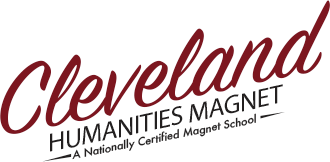10th Grade Social Institutions
Unit 1: Study of Virtue in The Ancient Greek Culture
Specific Topics
- The Geography of Greece
- The rise of democracy in Greece
- The Persian Wars
- The Athenian System of Education
- The Peloponnesian War
Essential Questions
- How did the harsh geography of Greece help mold the traditional virtues of the Greeks?
- How and why did philosophy and democracy rise during the Archaic Age?
- To what extent did Themistocles and Leonidas embody the Aristotelian concept of the Golden Mean during the Persian Wars?
- How does Plato want to reestablish virtue in Athens after the Peloponnesian War?
Student Understandings
Student will:
- explain how the geography of Greece led to the rise of warlike qualities such as bravery, strength and obedience in order to survive
- explain why being rational and logical became as important as being strong during the Archaic Age as the Athenians were not only warriors but also became citizens and politicians
- understand how the role of military tactics and intelligence in defeating the massive Persian army
- familiarize themselves with Plato’s utopia
Readings & Materials
- The Republic by Plato
- Readings: :”Virtue, Product of Greek geography”
- “The Rise of Trade and colonization” (Archaic)
- “The Rise of the Polis” (Archaic)
- “Athenian Democracy” (Classical)
- “Athenian Education: School of Reason” (Classical)
- “The Persian Wars” (Archaic)
- “Plato’s Republic” (Classical)
Unit 2: The Rise of Christianity
Specific Topics
- The creation and expansion of Rome
- The transformation of the Republic into an Empire
- The historical Jesus
- The Emperors Augustus, Nero & Constantine
- The role of Paul in spreading Christianity
Essential Questions
- How did Augustus’ Pax Romana allow the spread of Christianity westward?
- How did Nero’s rule of decadence lead to the embrace of Christian ethics by an increasing number of Roman citizens?
- Why did Constantine make Christianity the religion of the Empire?
Student Understandings
- Students’ will understand how Augustus, Nero and Constantine each contributed (intentionally or not) to the rise of Christianity in the West.
Readings & Materials
- Reading handouts
- The Old and New Testament
- PBS DVD: “The Roman Empire in the 1st century”
- BBC Documentary: “The Most Evil Men in History: Nero”
- A&E: “Christianity: the 1st 2000 years” (segment on Constantine)
Unit 3: The Bloody History of the Catholic Church
Specific Topics
- The Power of the Church
- The Rise of Islam and the reintroduction of classical learning in the West
- The Reformation and the decline of the Church
- Exploration and its impact on the Church
- The Crusades and their impact on the West
Essential Questions
How did:
- the Church establish itself as the main institution of the Middle Ages?
- the Europeans lost and rediscover classical learning in Spain?
- Exploration strengthen and weaken the Church?
- the Reformation split the Church?
Student Understandings
- The Rise and Fall of the Church
- The rise of science vs. the Church
- Why a religious government is not desirable
Readings & Materials
- “The Power of the Church”
- “The Rise of Islam”
- “The Age of Exploration”
- “The Great Wars of Religion”
Unit 4: The Romantics & The Victorians
Specific Topics
- The French Revolution
- The Industrial Revolution
- The Rise of capitalism and the Bourgeoisie in Europe
- The historical context that led to the growing influence of marxism
- Social Darwinism, nationalism and colonization
Essential Questions
How did:
- the Enlightenment lead to popular movements of rebellion such as in France in 1789?
- the French Revolution positively and negatively change the social and political fabric of Europe?
- the Industrial Revolution positively and negatively change the social and political fabric of Europe and America?
- both the French and Industrial Revolutions trigger the great modern conflicts of the 20th century?
Student Understandings
Students will be able to:
- analyze the factors that led to the beginning of the French and Industrial Revolutions
- show how these 2 events followed different paths but ended up with the same result: the rise of the Bourgeoisie in Europe
- show how WWI and WWII are rooted in the nationalism created by the French Revolution and the industrialization created by the Industrial Revolution
Readings & Materials
- Reading handouts
- History Channel DVD: “The French Revolution”
- A&E on Napoleon
- Charlie Chaplin’s Modern Times


